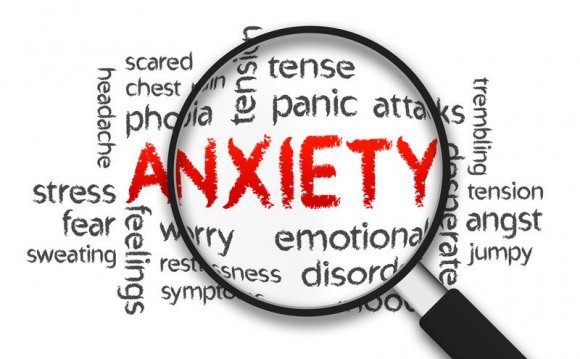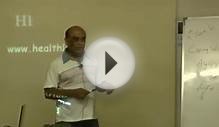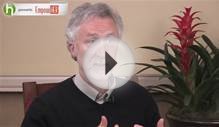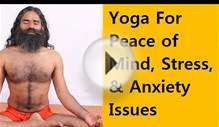
Ayurveda is a holistic system of healthcare and preventative medicine which was developed in India more than 5, 000 years ago. The term “Ayurveda” combines two Sanskrit words ayur (life) and veda (science or knowledge). Thus, Ayurveda is quite literally “the science of life.” The aim of Ayurvedic medicine is to integrate and balance the whole person: the body, mind and spirit in order to promote wellness and prevent illness. Ayurveda fosters an understanding of an individual’s unique mind-body constitution. According to Ayurveda, there are five master elements that make up our world and ourselves: space, air, fire, water, and earth. Each element carries inherent qualities, such as fire – hot and transformational or earth – solid and stable. Ayurveda places these elements into three basic energies or doshas: Vata (Air and Space), Pitta (Fire and Water), and Kapha (Earth and Water). As most individuals are a combination of these doshas, ayurvedic treatments work to restore balance to our bodies and minds and return us to our true constitutions for optimal health, balance, and happiness.
Ayurvedic science aims at the prevention and management of disease by establishing balance through nutrition, herbal medicines, ayurvedic therapies, pranayama or breathing exercises, yoga, meditation, and daily and seasonal routine.
Currently SCU offers two levels of Ayurvedic Certificate Programs:
1. Ayurvedic Wellness Educator (600 hrs.)
2. Ayurvedic Practitioner (1500 hrs.)
SCU Mission
The mission of the Southern California University of Health Sciences is to educate students as competent, caring and successful healthcare practitioners of integrative medicine.
SCU Vision
Southern California University of Health Sciences will be recognized as the premier educational institution for complementary and alternative medicine in the United States.
SCU Values
Excellence, Leadership, Integrity, Learning Effectiveness, Evidence-based/Outcomes-focused.
Ayurvedic Wellness Educator
During this one year program, students will learn basic principles of Ayurveda, Sanskrit, Ayurvedic History, Ayurvedic preventive science, yoga, Ayurvedic nutrition, Ayurvedic pathology, Ayurvedic herbology and pharmaceutics/home remedies, Ayurvedic detoxification methods and bodywork, Ayurvedic rejuvenation and basic understanding of common diseases. Students also will receive supervised internship at the SCU health center.
Upon completion, students will receive the Ayurvedic Wellness Educator Certificate. Students will be able to practice self-healing, and guide individuals and groups through educational seminars on the traditional principles and practices of the Ayurvedic way of life. Their scope of practice emphasizes education on prevention of imbalances and the promotion of wellness on all levels of being, using the life-enhancing modalities and philosophy of Ayurveda. Approaches include appropriate dietary, lifestyle, yoga, meditation, and health- promoting herbal recommendations. Assessment tools used by Ayurvedic Educators enable them to determine the individual’s body constitution, and the balanced and unbalanced states of the doshas (natural energy), agni (digestive fire), dhatus (tissues), and malas (waste products).
Course Outline

Program Breakdown
- In Classroom study 220hrs.
- Virtual class room: 75 hrs.
- E learning: 205 hrs.
- Clinic: 100 hrs.
Gainful Employment Disclosure
The U.S. Department of Education has established regulations requiring certificate and vocational programs at non-profit institutions that receive Federal student aid to meet specific standards to prepare students for gainful employment. Read more about the regulation in the Federal Register, Oct. 29, 2010.
Southern California University of Health Sciences is required to provide the following information on the Ayurveda Wellness Educator Certificate in compliance with 34 CFR 668.6.
Occupational preparation
The Ayurveda Wellness Educator prepares students to become a health educator.
Ayurveda Wellness Educator
Program Level - Undergraduate certificate
Program Length - 45 weeks
Estimated Program Cost
How much will this program cost me?*
Tuition and fees: $6, 651
Books and supplies: $0
On-campus room & board: not offered
*The amounts shown above include costs for the entire program, assuming normal time to completion. Note that this information is subject to change.
Financing
What financing options are available to help me pay for this program?
Financing for this program may be available through grants, scholarships, loans (federal and private) and institutional financing plans. The median amount of debt for program graduates is shown below:
Federal loans: *
Private education loans: *
Institutional financing plan: *
* Less than 10 graduates received loans. Median amounts are withheld to preserve the confidentiality of the loan recipients.
Program Success
How long will it take me to complete this program?
The program is designed to take 45 weeks to complete. Of those that completed the program in 2012-2013, *% finished in 45 weeks.
*Less than 10 students completed this program in 2012-13. The number who finished within the normal time has been withheld to preserve the confidentiality of the students.
What are my chances of getting a job when I graduate?
The job placement rate for students who completed this program in 2012-2013 is *%.
* This institution is not currently required to calculate a job placement rate for program completers.
Ayurvedic Practitioner
After completion of the Ayurvedic Wellness Educator Program, students can complete an additional 900 hrs education and receive the certificate for Ayurvedic Practitioner. Students will gain in-depth knowledge of basic principles of Ayurveda, yoga, Ayurvedic pathology, History taking, Ayurvedic physical examination, Ayurvedic herbology and pharmaceutics, Ayurvedic detoxification methods and bodywork and marma points, Ayurvedic rejuvenation and Ayurvedic disease managements.
Upon completion of the program, students will be able to determine the vikriti (imbalances) of an individual’s body and mind; will be able to design a treatment plan to realign unbalanced states of the doshas ( natural energy), agni (digestive fire), dhatus (tissues), and malas (waste products).
Course Outline for second year
Program Breakdown for second year
- In Classroom study: 240 hrs.
- E learning: 241 hrs.
- Clinic: 244 hrs.
- Projects: 100 hrs.
RELATED VIDEO












